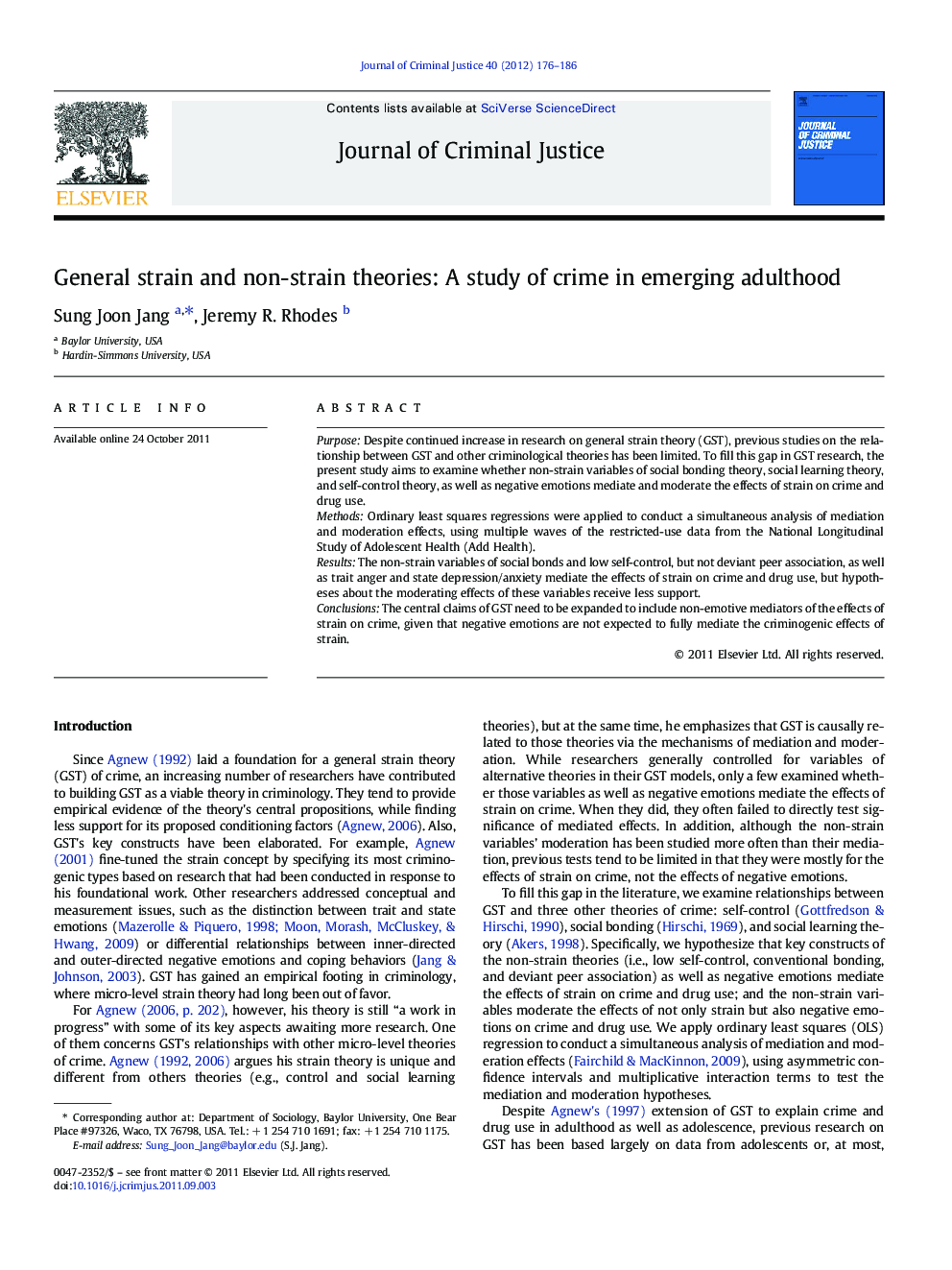| Article ID | Journal | Published Year | Pages | File Type |
|---|---|---|---|---|
| 882865 | Journal of Criminal Justice | 2012 | 11 Pages |
PurposeDespite continued increase in research on general strain theory (GST), previous studies on the relationship between GST and other criminological theories has been limited. To fill this gap in GST research, the present study aims to examine whether non-strain variables of social bonding theory, social learning theory, and self-control theory, as well as negative emotions mediate and moderate the effects of strain on crime and drug use.MethodsOrdinary least squares regressions were applied to conduct a simultaneous analysis of mediation and moderation effects, using multiple waves of the restricted-use data from the National Longitudinal Study of Adolescent Health (Add Health).ResultsThe non-strain variables of social bonds and low self-control, but not deviant peer association, as well as trait anger and state depression/anxiety mediate the effects of strain on crime and drug use, but hypotheses about the moderating effects of these variables receive less support.ConclusionsThe central claims of GST need to be expanded to include non-emotive mediators of the effects of strain on crime, given that negative emotions are not expected to fully mediate the criminogenic effects of strain.
► The strain of child maltreatment and criminal victimization tends to increase crime and drug use. ► Anger and depression/anxiety mediate the effects of strain on predatory crimes and marijuana use. ► Low self-control and social bonds, but not deviant peer associations, mediate the strain effect. ► Deviant peer associations aggravate the strain effect and the effect of anger on violent crime. ► Low self-control increases the strain effect on violent crime, but social bonds does not moderate.
